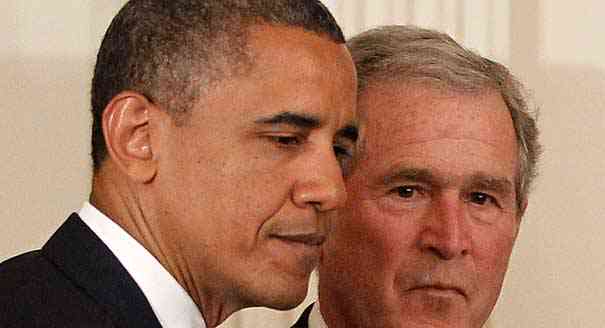The rule of law has always been integral to the American system. It hasn’t always been followed, of course, but as Glenn Greenwald has noted “even when this principle was being violated, its supremacy was also being affirmed: resoundingly and unanimously in the case of the founders.”
Videos by Rare
Unlike some European monarchies, where laws could be changed on the mere whim of some dictatorial—or even insane—ruler with absolute power, our founders sought to design what John Adams called, “a government of laws and not of men.”
And while the results certainly weren’t perfect, the goal was admirable: To guard liberty by building our government on impartial law, not the caprice of one person.
But what do you do when enforcing the rule of law could be bad for liberty?
That’s the dilemma we find ourselves in today, particularly due to a new, headline-making bill backed by Senator Rand Paul.
Paul is backing the “ENFORCE the Law Act,” which has already passed the House. It’s designed to strengthen the rule of law by allowing Congress to bring suit against anyone in the executive branch who refuses to follow or administer laws already on the books.
Now, at first glance, this sounds like a good idea for enforcing a major constitutional function of the presidency: “he shall take care that the laws be faithfully executed.” And it’s not like the rule of law couldn’t use some help these days. The law is anything but king—and it hasn’t been for a long time, as each new NSA revelation makes painfully clear.
Politicians regularly ignore the rule of law for their own convenience… and at our expense. This need for accountability is basically the argument Sen. Paul has made:
[Congress writes] laws and [the President] is just deciding willy-nilly if he likes it he enforces it, if he doesn’t, he won’t enforce it, and we really think he needs to be chastened, rebuked, and told that he needs to obey the Constitution.
Reasonable enough, right? The President shouldn’t have the arbitrary power to pick and choose which laws he wants to enforce and which he doesn’t.
So why is Paul catching flak for his decision?
Here’s the kicker: As some have been quick to point out, Congress could use this power to sue for enforcement of bad laws too—and we have plenty of those.
In fact, some of the other backers of H.R. 4138, like notorious drug warrior and internet censorship supporter Rep. Bob Goodlatte (R-VA), have explicitly said that’s why they support the bill. Goodlatte wrote in a report that he’ll use this law to try to force the Justice Department to crack down on medical and recreational marijuana dispensaries which are legal in certain states.
By contrast, Paul is known for his efforts to draw down the drug war and shift responsibility for drug problems away from Washington and toward local communities. This bill could potentially do the exact opposite—and thus we have the headlines announcing that, “Rand Paul backs bill that could lead to crack down on states where voters legalized weed.”
Technically that’s true, and it’s not something I want to see (heck, I’d like to end the drug war altogether, so not enforcing federal drug laws feels like a good start).
But here’s the problem: While we private citizens can always engage in civil disobedience, saying Presidents should simply ignore bad laws gets us into a grey area at best.
 President George W. Bush infamously refused to be subject to a congressional ban on torture. President Obama has become equally infamous for his defense of the NSA’s unconstitutional activity and his habit of ignoring laws whose enforcement would contradict his campaign promises.
President George W. Bush infamously refused to be subject to a congressional ban on torture. President Obama has become equally infamous for his defense of the NSA’s unconstitutional activity and his habit of ignoring laws whose enforcement would contradict his campaign promises.
If we rightly criticize these Presidents for ignoring the law when they want to, how can we ask them to ignore it when we want them to? What do we do when it seems like liberty and the rule of law are at odds?
How do we keep from being hypocritical?
First, we can distinguish between the Constitution and regular laws—something H.R. 4138 dangerously doesn’t do (which is a good reason to oppose the bill). The Constitution isn’t perfect, but it is supposed to be the standard against which all our other laws are measured.
If the President believes a law to be unconstitutional, he can refuse to enforce it while still remaining inside the bounds of the rule of (the supreme) law (of the land). If he simply disagrees with a law politically, that’s not grounds for refusal to follow it.
As you can imagine, this distinction clears up much of our difficulties. President Bush ignoring a torture ban was a political decision which violated the Eighth Amendment. It wasn’t legal.
Likewise, President Obama’s NSA activity violates the rule of law because he’s trampling the Fourth Amendment—but his refusal to prosecute medical marijuana dispensaries, by contrast, is perfectly legal, because the Constitution doesn’t give the federal government the authority to wage the drug war in the first place.
Second, when this dilemma arises it should catalyze us to oppose all laws which attack liberty and grow government. To maintain the advantages the rule of law has to offer, we must make sure the laws ruling us are actually worth enforcing.
Though rule of law by itself doesn’t guarantee “a just and free society, it’s absolutely necessary for it.”
We won’t be safe from the suppression of liberty until we can once again say with Thomas Paine, “[I]n America THE LAW IS KING.”


